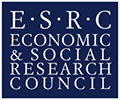What role do reparations play in international law today? What is the theory behind reparations in different areas/systems of international law? Do reparations play a different role in different areas of international law (human rights, investment law)? How are reparations chosen by judges and arbitrators and how are damages calculated? What is the link between efficiency and reparations? How can reparations be made more efficient? How do judges/arbitrators understand their role in relation to reparations?
These questions will be at the centre of an ESIL-sponsored workshop held at the Lauterpacht Centre, University of Cambridge in November 2018. The workshop will seek to address the recent developments and scholarship in the area of reparations (remedies) in international law. It will bring together scholars writing on theory of reparations, those conducting empirical or comparative research, as well as practitioners, judges and arbitrators. The aim is to provide a platform for discussion of new ideas about efficiency of reparations in international law.
At this point, the organisers would like to invite scholars and practitioners working in the area, to submit a max. 400-word abstract to Dr Veronika Fikfak at vf243@cam.ac.uk. The deadline for submission is 30 April 2018. Abstracts will be selected by early June. Papers for the workshop will have to be submitted by mid-September.
The workshop is part of a larger project on Damages for Human Rights Violations funded by the ESRC. It is organised by Dr Veronika Fikfak, Lauterpacht Centre, University of Cambridge and Professor Photini Pazartzis, Athens Public International Law Centre, National & Kapodistrian University of Athens. The aim is to publish suitable contributions as an edited collection or special edition of an international journal. Papers with an empirical or comparative approach are particularly welcome.





 Facebook
Facebook  X/Twitter
X/Twitter  Instagram
Instagram  YouTube
YouTube  Flickr
Flickr  LinkedIn
LinkedIn